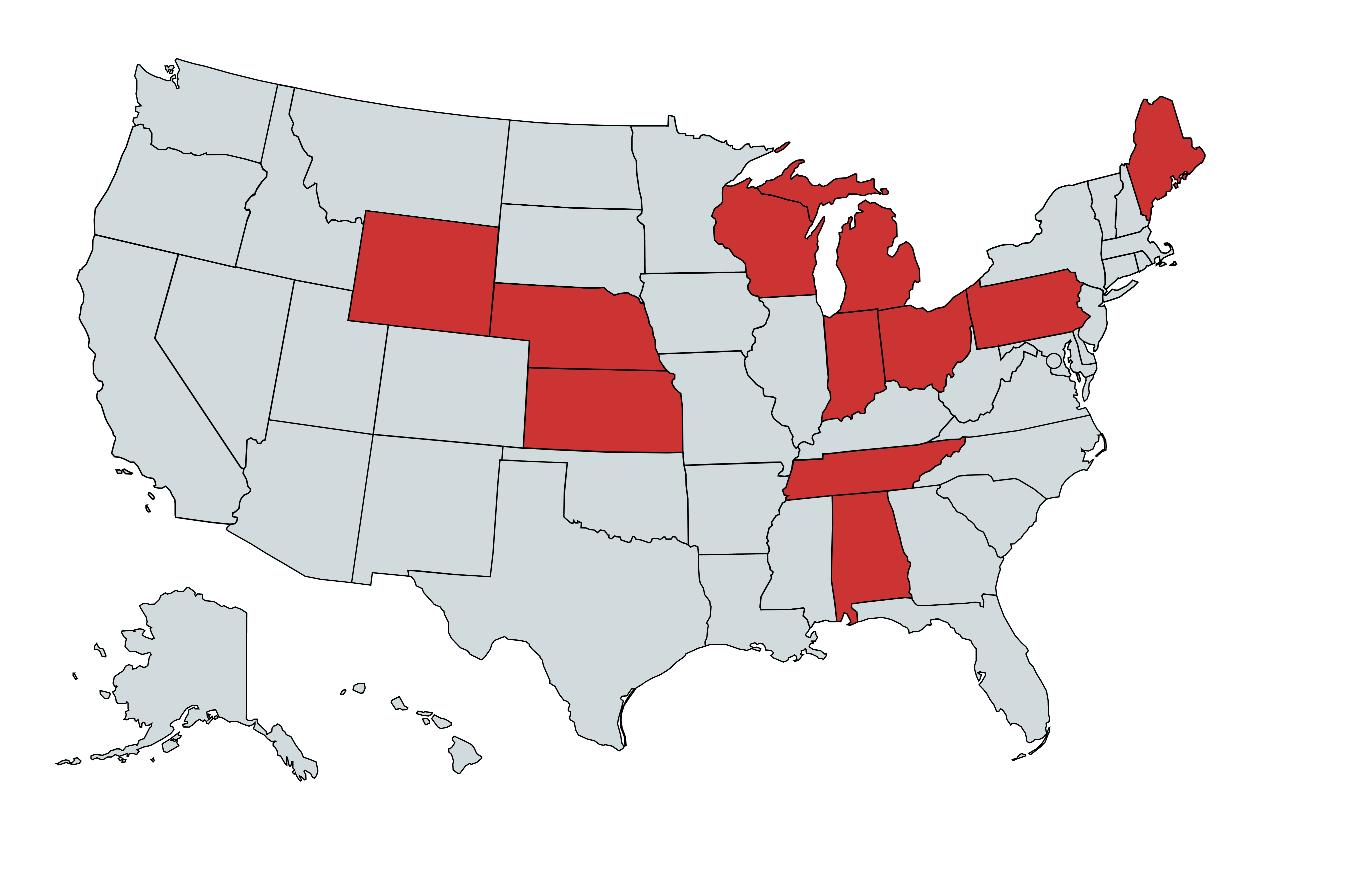Corporate power in state legislatures produces a gerrymandered Congress
In January 2010, the Supreme Court’s Citizens United decision allowed corporations, for the first time ever, to spend unlimited money on politics. Within a few months, Republican strategists and the U.S. Chamber of Commerce hatched a plan to take advantage of the newly available corporate cash. They called it Project “RedMap,” or “Redistricting Majority Project.” Its goal was to use corporate money— much of it contributed secretly through the Chamber— to win Republican control of state legislatures in the Fall of 2010. That year’s elections were particularly important because the officials who came into office that year would be charged with redrawing legislative district boundaries based on the 2010 census.
The business lobbyists were more successful than they could have hoped. With their help, eleven states that had previously been governed by a combination of Democrats and Republicans became wall-to-wall Republican, with the GOP controlling both houses of the legislature along with the Governor’s mansion. Critically, this included a swath of traditional swing states with strong labor movements running from Pennsylvania to Wisconsin across the upper Midwest.
It’s not surprising that corporate money would have an outsized effect in state politics. Few people pay attention to state politics—less than one-quarter of Americans even know who their state representative is— so there’s less opposition to the moneyed interests. And legislative races are relatively cheap to buy. In North Carolina, for instance, supermarket magnate and Koch brothers’ affiliate Art Pope contributed $2.3 million to 20 favored candidates in 2010— effectively doubling these candidates’ campaign budgets. Eighty percent of Pope’s candidates won, and with his help, Republicans gained control of both houses of the North Carolina legislature for the first time since the Reconstruction.
The power of corporate money helps explain why so many “purple” states whose population is evenly divided between Republicans and Democrats and that are therefore tossups in presidential elections— including Wisconsin, Michigan, Pennsylvania, North Carolina, and Florida— nevertheless are governed by radical right-wing legislatures.
Once winning power, the corporate lobbies have pursued a radical agenda of defunding public services, destroying both public and private sector unions, cutting minimum wage, and making it harder to sue over race or sex discrimination. And they’ve used their power in state legislatures to restrict local democracy, prohibiting cities’ right to establish their own minimum wage, right to sick leave, or mechanism for recovering wages stolen by one’s employer.
But the corporate investment in politics has paid dividends at the federal level as well as in the states. A recent study from the Brennan Center for Justice reports that when state legislators redrew the lines for Congressional Districts, they engaged in such severe gerrymandering that the GOP now holds 17 seats that would have been won by Democrats if the district boundaries were fairly drawn.[1] In the current Congress, Democrats would need to win a total of twenty-four Republican-held seats in order to regain the majority. But most of this gap is the product of gerrymandering; if the districts were impartial, Democrats would be only seven seats away from a majority.
Unsurprisingly, a majority of the gerrymandered seats in Congress come from states targeted by Project RedMap. The three most intensely gerrymandered states—Michigan, Pennsylvania, and North Carolina, which together gave the GOP 7 extra seats in Congress—were all prime targets of corporate funders.
Next time you wonder why the Congress is voting to take away people’s health insurance in order to fund tax cuts for the rich, here’s a big part of the answer. It’s not the will of the people at work: it’s the will of corporations who, free to spend unlimited sums on politics, have bought themselves a rigged system.
Gordon Lafer is author of The One Percent Solution: How Corporations are Remaking America One State at a Time.
[1] Laura Royden and Michael Li, Extreme Maps, Brennan Center for Justice, 2017. https://www.brennancenter.org/sites/default/files/publications/Extreme%20Maps%205.16.pdf.
Enjoyed this post?
Sign up for EPI's newsletter so you never miss our research and insights on ways to make the economy work better for everyone.
